What is a Bingo Game? Guide for Online Bingo
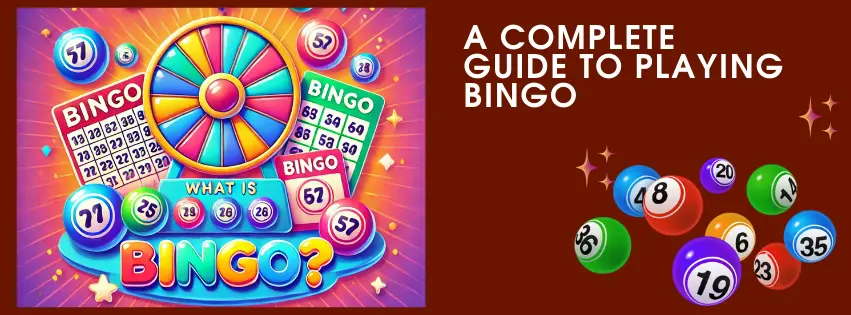
What Is Bingo?
Bingo is a game where you have a card with numbers on it, and when the caller announces a number, you mark it if it’s on your card. The goal is to get a line of numbers, either straight or diagonal, and then call out “Bingo!” to win.
There are different types, like the classic 75-ball bingo played in the U.S. and 90-ball bingo commonly found in India and the U.K. Some versions are played online with even more variations, including speed bingo, which is quick and exciting. For those looking to add an extra thrill, there’s also the bingo game for money, where real cash prizes are at stake, making every number called even more exciting.
Short History and Evolution
Bingo started in Italy around the 16th century and then spread to other European countries, including France and Germany. It became not only a fun activity but also a way to teach and learn. By the 20th century, bingo reached North America, where Edwin S. Lowe refined the rules into the familiar version we know today. For more details about bingo’s history and origins, check the article.
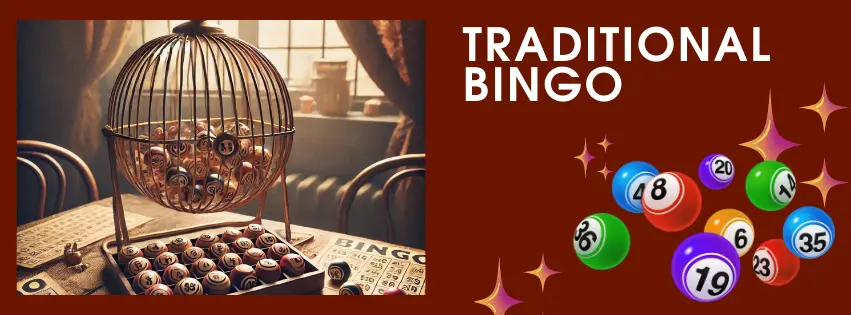
Traditional Bingo
Traditional bingo is a simple game where players try to match numbers on their cards with those called out by a host. The main goal is to complete a pattern—like a line or a full house—before anyone else does.
Anyone can play, from kids to adults, making it a popular activity at family gatherings and festivals.
In India, this game is often known as “Tambola” or “Housie,” and people play it at parties, weddings, and community events.
Online and Virtual Bingo Games
Modern bingo comes in several variations. Online bingo is played through websites or apps where numbers are called automatically, and players can join games anytime. A popular example is the 90-ball version found on Indian bingo apps.
Online bingo games often include colorful themes, live chat rooms, and additional features like mini-games and loyalty bonuses. This diversity ensures that every player can find a game that suits their preferences and playing style. Unlike traditional bingo, online versions may use automatic daubing, making it easier for players to focus on socializing and enjoying the experience.
Virtual bingo is similar, but it often includes interactive features like live hosts and themed rooms. Globally, 75-ball bingo is popular in the U.S., while 90-ball remains a favorite in India and the U.K.
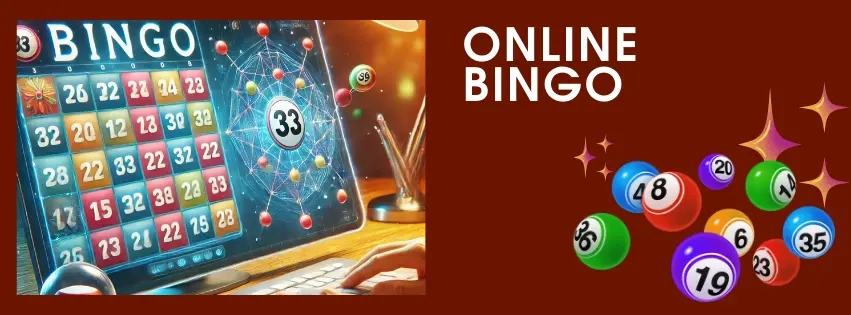
Traditional Bingo vs. Online Bingo
| Feature | Traditional Bingo | Online Bingo |
| Location | Played in physical halls or venues. | Can be played anywhere with internet. |
| Convenience | Requires travel to a bingo hall. | Available at any time, anywhere. |
| Social Interaction | Face-to-face with other players. | Chat rooms and online communities. |
| Game Variety | Typically 90-ball or 75-ball games. | Offers multiple variations (e.g., speed bingo, themed games). |
| Speed | Depends on the caller and participants. | Automated, often quicker rounds. |
| Cost | Usually set ticket prices. | Flexible pricing, often includes bonuses. |
| Technical Skills | No technical knowledge needed. | Requires basic online navigation skills. |
| Prize Accessibility | Prizes distributed on-site. | Winnings credited to your account directly. |
Both have their unique benefits—traditional bingo offers a lively, in-person atmosphere, while online bingo provides flexibility and a wide range of game options.
Understanding Bingo
The Fundamental Principles
At its core, bingo is about matching announced numbers to those on your card. A random number generator or a physical ball-drawing machine determines the sequence of numbers. Players must stay alert, listening carefully and marking their cards accurately. Winning typically involves completing a specific pattern, and while luck is the driving force, attentive listening and quick marking can give players a slight edge. As a social game, bingo also encourages interaction and friendly competition among participants.
Terminology
Bingo’s lingo adds to its charm and sense of community. Common terms:
- Full House: Marking off every number on your card, which usually means the top prize.
- Lines: Completing one or more horizontal rows on the bingo card.
- Caller: The person who announces the numbers during the game.
- Bingo Card: A grid of numbers you use to play. In most versions, it’s a 5×5 grid with a free space in the center.
- Dauber: A marker used in traditional bingo to mark off numbers.
- Pattern: The arrangement of marked numbers needed to win, like a line, an X-shape, or a full card.
Players may also encounter quirky nicknames for numbers. Here are some fun nicknames often used for numbers in bingo:
- Two Little Ducks (22): The number 22 resembles two ducks side by side.
- Legs Eleven (11): The number 11 looks like a pair of long legs.
- Top of the Shop (90): Since 90 is the highest number in traditional 90-ball bingo, it’s called the “top of the shop.”
- Kelly’s Eye (1): This is an old bingo nickname that simply refers to the first number, number 1.
- Clickety Click (66): A playful phrase that rhymes with the number 66.
Understanding these terms enhances the experience, allowing players to fully immerse themselves in the game.
Playing
Playing bingo is straightforward: purchase a card, listen carefully as numbers are called, and mark them off as they appear. If you achieve the winning pattern, call out “Bingo!” to claim your prize.
Cards
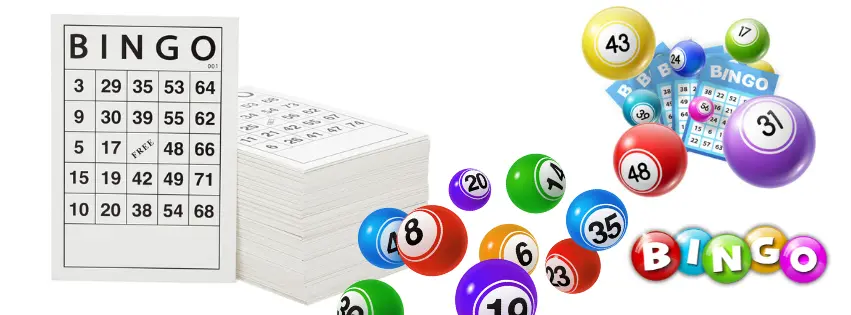
A bingo card is a grid, usually 5×5, filled with numbers arranged in columns labeled B-I-N-G-O. The center square is often a free space. Each column corresponds to a set range of numbers (e.g., the “B” column might hold numbers 1-15). Cards are randomly generated, ensuring that no two cards are alike. The uniqueness of each card makes every game an unpredictable and exciting challenge.
Learn more about playing bingo →
Legality in India
The legality of bingo in India varies by region. Some states consider it a game of skill, making it permissible under local gambling laws, while others may impose stricter regulations.
Players should familiarize themselves with the laws in their specific state and choose licensed platforms if they wish to play online. Key laws that can affect bingo include:
- Public Gambling Act, 1867: This central legislation, though outdated, forms the foundation of gambling laws in several states. It prohibits the operation of public gambling houses and participation in public gambling. However, many states have enacted their own gambling laws based on or independent of this Act.
- State-Specific Gaming Acts: Different states have their own regulations. For example, the Bombay Prevention of Gambling Act, 1887 applies in Maharashtra, and the Bengal Gambling Act, 1867 applies in parts of West Bengal. These state laws define what constitutes gambling and determine whether games like bingo are allowed.
- Lottery Regulation Laws: Some states have legalized and regulate lotteries, and bingo might be considered under certain lottery frameworks, depending on the jurisdiction.
- Information Technology Laws (for online bingo): If bingo is played online, operators must also comply with the Information Technology Act, 2000, and any related rules or amendments. While this law does not specifically regulate gambling, online gaming platforms often have to ensure they meet data security, user verification (KYC), and content standards.
Responsible play and adherence to legal guidelines are crucial for a safe and enjoyable experience.
Is a license required to conduct bingo?
Whether a license is required depends on the state and the nature of the game. In some states, bingo might be considered a skill-based or charitable game and thus not require a gambling license. In other states, if bingo is operated commercially or involves monetary stakes, the operator might need to obtain a license from the relevant state authority.
How Does Online Bingo Work?
Online bingo platforms use random number generators to ensure fairness. Players purchase virtual cards, and the game begins once all participants are ready. Numbers appear on the screen, and many sites automatically mark them on your card. Online bingo often includes interactive chat features, allowing players to engage with others while playing. The process is user-friendly, making it accessible even for those new to online gaming.
Types of Online Bingo Games
Online bingo offers numerous variations, such as 75-ball, 90-ball, 30-ball (speed bingo), and themed games with unique patterns. Some platforms also host progressive jackpot games, where the prize pool grows until someone wins. The variety keeps players engaged and ensures there’s always something fresh to try.
- 75-Ball Bingo: Popular in the U.S., players get a 5×5 grid card, and the aim is to form a specific pattern.
- Example: Indian platforms may offer themed 75-ball games for local festivals.
- 90-Ball Bingo: Widely played in India and the U.K., players win by completing one line, two lines, or a full house on a 9×3 grid.
- Example: Tambola-inspired 90-ball games are often found on Indian gaming sites.
- Speed Bingo (30-Ball Bingo): A fast-paced version played on smaller 3×3 grids, perfect for quick games.
- Example: Mobile bingo apps in India frequently include speed bingo rounds.
- Themed Bingo Games: These games have special designs or topics, like Bollywood or cricket, making them fun and engaging.
- Example: Indian platforms might offer cricket-themed bingo during IPL season.
Each type offers a different experience, catering to players who enjoy either traditional formats or newer, fast-paced options. Learn more about Bingo Types.
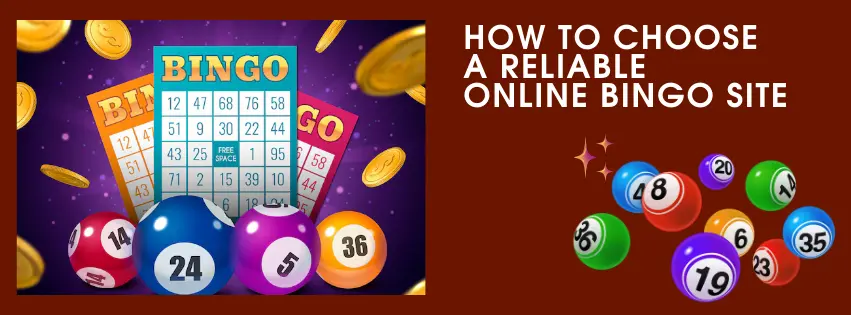
Online Sites to Choose
When selecting an online bingo site, look for reputable operators with strong security measures, a good selection of game types, and positive player reviews. Consider sites that offer bonuses, loyalty rewards, and active community features. Popular platforms often have user-friendly interfaces, helpful customer support, and mobile compatibility, ensuring a smooth experience.
Main Features of a Safe Online Bingo Site
- Proper Licensing: The site should be licensed by a well-known authority, so you know it’s legitimate.
- Secure Payments: It should offer trusted payment options, like UPI, credit cards, or popular wallets, and use encryption to protect your transactions.
- Fair Games: The games should use random number generators to ensure fair results, with no chance of cheating.
- Good Reputation: Look for sites that have positive reviews and a history of paying winners without trouble.
- Customer Support: The site should have a reliable help team, available through chat, email, or phone, to assist with any issues.
- Clear Terms and Conditions: Rules about bonuses, payouts, and withdrawals should be easy to find and understand.
- Responsible Gaming Options: The site should offer tools like deposit limits or self-exclusion options to help players control their spending.
